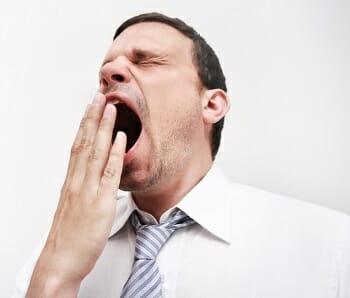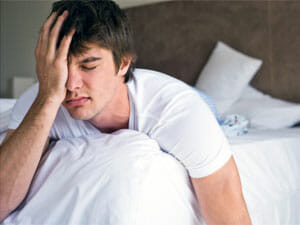What is Long Sleeping?
 Oversleeping, long sleeping, sleeping too much, hypersomnia – no matter what you call it, we are referring to the same condition. It comes down to knowing whether you are getting too much or too little sleep every night.
Oversleeping, long sleeping, sleeping too much, hypersomnia – no matter what you call it, we are referring to the same condition. It comes down to knowing whether you are getting too much or too little sleep every night.
Depending on who you ask, most experts agree that the ideal amount of sleep that you should get each night is between 7 to 9 hours. The amount of sleep that you get each night will often vary somewhat depending upon age. Regularly sleeping more than 9 hours may indicate that you have an underlying health issue, although this is not always the case.
If you are sleeping more than 9 hours each night, you may want to begin by taking a look at your lifestyle.
Considerations For Long Sleepers
 There are several questions that you should ask yourself when investigating your sleeping habits. Do you consume an excessive amount of alcohol before going to bed? Do you take sedatives, prescription medication, or other drugs that may disrupt your sleep and cause you to stay in the bed longer? What about caffeinated beverages before bed? All of these items may cause you to sleep in excess.
There are several questions that you should ask yourself when investigating your sleeping habits. Do you consume an excessive amount of alcohol before going to bed? Do you take sedatives, prescription medication, or other drugs that may disrupt your sleep and cause you to stay in the bed longer? What about caffeinated beverages before bed? All of these items may cause you to sleep in excess.
Take a look at your dietary and exercise habits. Poor diet along with lack of exercise will leave you feeling sluggish and tired which may cause you to sleep in excess.
Refrain from bad habits that may disrupt sleep, eat a balanced diet and exercise. If nothing else, making these changes will have a positive impact on your health in general.
What Else Causes Over Sleeping
There are several possible causes of oversleeping other than lifestyle choices. For this reason, it’s important that you first speak with your doctor who can help you to determine the cause of excessive sleeping.
One cause may be depression. While depression is more often linked to insomnia, it can also cause one to oversleep. Your doctor can help you to determine if depression is contributing to oversleeping. Depression can be treated using a combination of prescription medication and speaking with a therapist.
Another condition, hypothyroidism, affects about five percent of the population and is characterized by an under-active thyroid. The thyroid plays a major roll in how the body functions because it controls the way that the body uses energy. When it malfunctions, this can leave you feeling constantly tired which will cause you to sleep more than normal. Your doctor can check your thyroid function and may prescribe medication if he or she finds an issue.
 How do you feel upon rising after getting 9+ hours of sleep? Do you feel refreshed and ready to conquer the day or do you still feel tired, sluggish and could continue to sleep? If you still feel tired even after getting more than the recommended amount of sleep, this may be caused by a sleep disorder or breathing-related sleep disorder such as obstructive sleep apnea (OSA). Do you snore? Has your partner noticed pauses in your breathing? Snoring, pauses in breathing, and daytime tiredness are all classic signs of obstructive sleep apnea.
How do you feel upon rising after getting 9+ hours of sleep? Do you feel refreshed and ready to conquer the day or do you still feel tired, sluggish and could continue to sleep? If you still feel tired even after getting more than the recommended amount of sleep, this may be caused by a sleep disorder or breathing-related sleep disorder such as obstructive sleep apnea (OSA). Do you snore? Has your partner noticed pauses in your breathing? Snoring, pauses in breathing, and daytime tiredness are all classic signs of obstructive sleep apnea.
You may be surprised to hear that over 25 million adults in America suffer from sleep apnea. What’s even more surprising is the majority of sufferers are unaware of their condition. Untreated sleep apnea can lead to high blood pressure, heart attack, and stroke among several other serious conditions. Sleep apnea occurs when the airway collapses while asleep and prevents breathing. When breathing ceases, your body will be startled awake so that breathing can resume. This cycle continues several times through the night which prevents you from getting a restful nights sleep. In most cases, the person will not recall waking up several times throughout the night.
Fortunately, treating OSA is typically an easy task. Most doctors will first diagnose sleep apnea by having their patient conduct a sleep study which can be completed in a lab or at home. Lab studies are typically more comprehensive while at home sleep studies usually provide enough information to make a diagnosis. At home studies are often a more cost-effective diagnosing tool because they are self-administered with fairly simple equipment which monitors heart rate, breathing, O2 levels, and such.
If your doctor determines that sleep apnea is present, they will likely prescribe a Continuous Positive Airway Pressure (CPAP) machine which blows air into your airway throughout the night using a tube and mask to prevent your airway from collapsing. Since obstructive sleep apnea is often caused by being overweight, if you are overweight, your doctor may suggest losing a few pounds as a way to prevent sleep apnea from occurring.
Other treatment options include a mandibular advancement device which holds the jaw forward and prevents airway collapse. These devices are often referred to as oral appliances and can be custom made by your dentist. Tongue stabilizing devices (TSD) can be purchased online and offer a one-size-fits-all solution to sleep apnea. Be sure to first speak with your doctor before treating sleep apnea with any product that can be purchased on the internet.
When Oversleeping Isn’t Normal
Before drawing any conclusions, it’s important to note that some people simply require more sleep than others and do not have a health condition that’s causing their excessive sleeping. While it’s easy to simply write off excessive sleeping as “normal”, you should take a closer look at what may be going on.
Begin by examining the lifestyle choices that you make each day. While it’s never easy to alter habits, you may find that changing a few habits will make a difference. Just to be sure, you should also speak with your physician to discuss the possibility of another condition that’s causing long sleeping.
Share This Post: